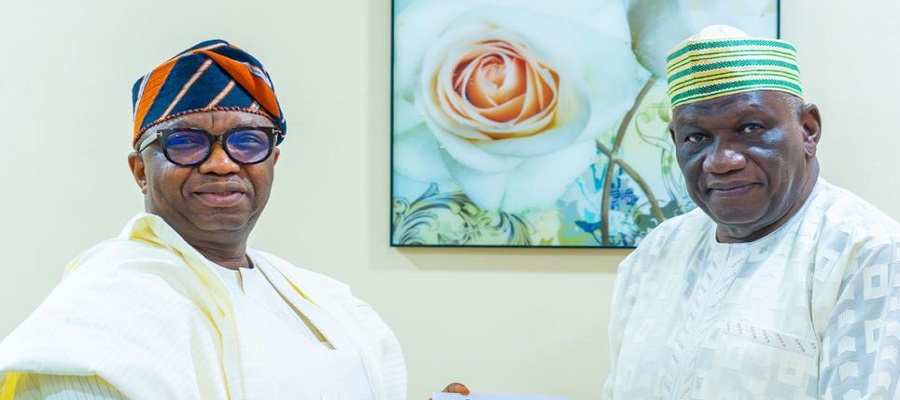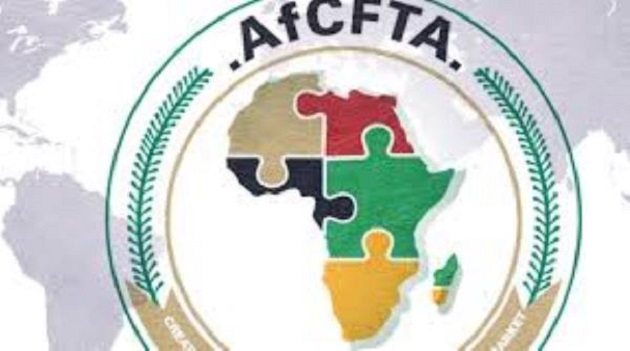E-Business
Clickatell Predicts Mobile Messaging to be the Next Big Channel for Digital Commerce in 2023

Clickatell, a Chat Commerce and business messaging leader, conducted research on customer service trends and preferences for travel and retail and identified that brands that personalize both their digital and in-person commerce experiences can generate more meaningful and lasting customer relationships.

In 2023 mobile messaging will emerge as the ideal channel to create these holistic commerce experiences for consumers as well as to accelerate business demand and grow revenue, according to Clickatell’s leaders.
This and the five additional mobile messaging trends are likely to be the most relevant priorities in 2023 to help brands build and maintain consumer loyalty.
Chat Commerce is the next wave of digital commerce
“The next wave of digital commerce will strongly emerge in 2023. Shopping digitally, whether on the web or on a mobile device, is now widely adopted by consumers.
“But strong demand by consumers for even more convenient shopping will make 2023 the tipping point for Chat Commerce, with more consumers engaging with their favorite brands within the messaging apps they use every day, such as SMS, Apple Messages and WhatsApp.
“In 2023, the commerce experience within messaging apps will evolve to be more functional, with experiences that rival that of other mobile apps,” said Pieter de Villiers, CEO and Co-Founder at Clickatell.
Convenience adds a critical layer of satisfaction for consumers
“Brands add a layer of convenience by offering a real-time mobile option for consumers to receive order updates, new offers, and the ability to simply shop and transact through the messaging channels they already use daily, rather than shopping at a separate digital destination such as a website or mobile app.
According to Clickatell’s Chat Commerce Trends Report: Retail Edition, 51% of consumers want access to special offers via mobile messaging and 46% of consumers want to receive personalized promotions for things like last-minute deals. Retailers need to be meeting consumer expectations and that points to messaging commerce,” said Jennifer Shambroom, CMO at Clickatell.
Providing customer service exclusively online is a smart move
“With increasing costs and labor shortages, brands are looking for ways to simplify and consolidate, and leveraging mobile messaging with chatbots and the convenience of asynchronous communication with customers is a good decision.
Millennials and Gen Z are more likely to view messaging as a preferred communication channel. Our Chat Commerce Trends Report: CX Edition revealed 99% of customer service executives recognize the benefits of using chat with customers to bolster customer experience and drive revenue and growth for their businesses.
Further, with rising expectations of customer service departments to generate sales revenue, mobile messaging provides a seamless and secure venue for transactions that allows representatives to support customers along their entire path to purchase, while also encouraging the opportunity for increased sales,” said De Villiers.
Consumers want to use mobile messaging to make payments
“Commerce within mobile messaging is becoming the preferred way for consumers to shop, accounting for 71% of retail traffic and generating 61% of online shopping orders. In 2023, brands will need to double down on mobile, and mobile messaging channels are the place to focus. Consumers want to use mobile messaging with a retail company if it is as convenient as chatting with a friend,” said De Villiers.
Mobile messaging apps are the new super app
“Consumers live on their mobile phones, especially in mobile messaging apps. As consumer behavior continues to trend toward engaging with brands within messaging apps, the need for a business to invest in a custom mobile app will become less viable.
“Mobile messaging apps will become the Super App in 2023 and beyond, going beyond linear message threads to deliver the full range of commerce experiences, allowing consumers to receive special offers, make immediate purchases, coordinate item drop-off and pick-up, and contact customer service, delivering satisfying, personalized experiences across the entire customer lifecycle,” said Shambroom.
E-Business
NDPC Secures NJI’s Support for Data Privacy Rights in Nigeria

Nigeria Data Protection Commission (NDPC) has secured the support of the National Judicial Institute (NJI), in line with its objective of safeguarding the data privacy rights of Nigerians.

Dr. Vincent Olatunji, national commissioner and CEO, NDPC Hon. Justice Salisu Garba Abdullahi (Rtd) of NJI
This was contained in a press statement signed by Mr Itunu Dosekun, head of Media, NDPC, and made available to journalists in Abuja, the nation’s capital.
NJI is a government institution responsible for the training of judicial officers in Nigeria, from magistrate courts to the Supreme Court of Nigeria.
During a courtesy visit by the Commission to NJI, Dr. Vincent Olatunji, national commissioner and CEO, NDPC, lauded the management of NJI under the leadership of Hon. Justice Salisu Garba Abdullahi (Rtd) for the milestones the Institute has achieved in human capital development, particularly for judicial officers and fellows of the Institute.
While commenting on the importance of the Nigeria Data Protection Act in the face of disruptive technologies, Dr Olatunji reiterated the need to collaborate with NJI in keeping judicial officers abreast of privacy jurisprudence.
He noted that decisions on the enjoyment of data privacy rights concerning one citizen have fundamental implications for all citizens.
“It is the digital age, and the protection of the privacy of all citizens worldwide is paramount.
“It is now the right of all citizens to have their privacy protected. This is why countries across the globe are putting adequate measures in place to ensure enforceable data protection rights, as well as establishing data protection authorities to enforce data protection laws,” Dr Olatunji stated.
In his response, Justice Abdullahi commended the NDPC, under Dr Olatunji’s leadership, for its significant achievements since its establishment.
He pledged to collaborate with the NDPC to raise awareness of data protection and privacy within the judiciary and accepted the NDPC’s proposal, anchored on capacity building for judges, NJI fellows, and employees.
“The issue of data protection is very important. It is new, and judges need to be trained. The first step we should take is to review the Act (NDP Act) that established the Commission. Additionally, there is a need for us to train our fellows on data protection.”
NJI and NDPC have put in place a technical working group that will draw up a work plan and coordinate the initiatives for capacity building. The working group is expected to report back within days to commence implementation.
E-Business
Flutterwave Partners NITDA to Strengthen Nigeria’s Digital Economy

Flutterwave, Africa’s payments technology company, said it has formed a strategic partnership with the National Information Technology Development Agency (NITDA), to drive digital transformation and ultimately economic growth across Nigeria.

Olugbenga Agboola, founder and CEO of Flutterwave and Kashifu Abdullahi, director-general & CEO of NITDA
The collaboration aims to address the slow adoption of digital solutions among small and medium-sized enterprises (SMEs), a critical challenge that, when solved, can significantly boost the nation’s digital economy.
By promoting digital literacy, encouraging fintech innovation, and supporting key national initiatives such as the National Digital Economy Policy and Strategy (NDEPS), the partnership has a goal to accelerate Nigeria’s transition into a thriving digital ecosystem.
Despite the rapid evolution of digital payment systems, many SMEs in Nigeria still rely on traditional business models that limit their growth potential.
The inability to adopt digital payments, leverage e-commerce, and access secure financial solutions creates barriers to scaling and participating in the global economy.
Recognising this challenge, Flutterwave and NITDA were collaborating to bridge the digital divide and equip businesses with the right tools and expertise to embrace digital transformation.
Speaking on the partnership, Olugbenga Agboola, founder and CEO of Flutterwave, said, “many small businesses in Nigeria struggle to fully embrace digital solutions, and we believe that by providing seamless and secure payment technologies, we can empower them to scale with confidence.
“This partnership with NITDA reinforces our dedication to encouraging a truly inclusive digital economy, and we are proud to contribute to the outstanding work NITDA is doing to transform Nigeria’s digital landscape.”
Kashifu Abdullahi, director-general & CEO of NITDA, added, “Flutterwave’s reputation for fintech innovation aligns perfectly with our vision for a thriving digital economy. We recognize that slow digital adoption among SMEs has hindered economic growth, and through this collaboration, we aim to provide businesses with the necessary resources and infrastructure to transition into the digital age.”
The partnership represents a significant step toward Nigeria’s digital transformation, with Flutterwave and NITDA working hand in hand to create an environment where businesses can thrive through innovative financial solutions.
Flutterwave is a payments technology company that enables businesses across the world to expand their operations in Africa and other emerging markets through a platform that enables local and cross-border transactions via one Application Programming Interface (API).
Flutterwave has processed over 890 million transactions in excess of $34 billion, serves global and African customers like Uber, Air Peace, Bamboo, PiggyVest, and across various industries.
E-Business
AfCFTA Digital Trade Protocol Targets 50% Growth by 2030

Vice President, Kashim Shettima, has stated that the African Continental Free Trade Area (AfCFTA) Digital Trade Protocol is set to grow intra-African trade from 18 per cent in 2022 to 50 per cent by 2030.

Commenting at the AfCFTA Digital Trade Workshop and Global Market, with the theme, “Unlocking State Exports Potential,” held in Abuja, Shettima who was represented by the Minister of Industry, Trade, and Investment, Dr. Jumoke Oduwole, highlights Nigeria’s role in digital commerce, citing the country’s 109 million internet users and expanding mobile economy as key enablers.
He emphasised that Nigeria’s advancements in mobile payments have revolutionized cross-border transactions, financial inclusion, and digital commerce, positioning the country as Africa’s digital trade hub.
“The internet economy is expected to contribute 5.2 per cent of Africa’s GDP this year, with the digital economy projected to grow to $180 billion, up from $115 billion in 2020,” he noted.
Shettima reaffirmed Nigeria’s commitment to modernising passport application systems and upgrading port infrastructure to streamline trade, reduce customs processing times, and strengthen the country’s role in handling West Africa’s cargo.
“We must move from policy discussions to implementing digitally enabled trade that fosters economic prosperity,” he urged.
The African Union (AU) recently recognised Nigeria as the Digital Trade Champion for Africa under the AfCFTA Digital Trade Protocol, a status confirmed during the 38th Ordinary Session of the Assembly of Heads of State and Government in Addis Ababa, Ethiopia.
Governor Uba Sani of Kaduna State, represented by Deputy Governor Dr. Hadiza Balarabe, warns that any nation failing to embrace digital trade risks being left behind. He commends the Tinubu administration for its achievements in the ICT sector.
“Digital trade platforms have broken traditional barriers, allowing businesses of all sizes to access regional and global markets more efficiently,” he says.

 General News2 days ago
General News2 days agoSANEF Appoints Uche Uzoebo as New Chief Executive Officer

 E-Financial2 days ago
E-Financial2 days agoFlutterwave Visits Tinubu, Seeks Support to List on NGX

 General News2 days ago
General News2 days agoAgain, Gambaryan, Binance Executive Accuses 3 Lawmakers, NSA of Demanding $150m Bribe

 Telecom2 days ago
Telecom2 days agoGlobacom Continues Upgrade of Network Infrastructure Across Nigeria

 Telecom2 days ago
Telecom2 days agoATCON Warns of Nationwide Telecom Blackout over Diesel Shortage

 News2 days ago
News2 days agoNITDA Inaugurates Technical Working Group to Drive Nigeria’s Digital Sovereignty

 E-Financial2 days ago
E-Financial2 days agoSERAP Drags CBN to Court over ATM Fee Hike

 News2 days ago
News2 days agoNigeria to Witness First Lunar Crescent on 28 February – NASRDA



























